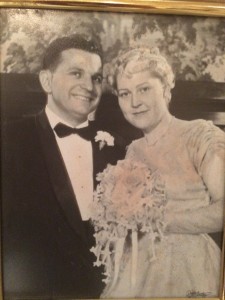Write a short story (600 – 1000 words max) that describes your sense of home and the values and stories that you use to connect yourself to your home.
The first thing that comes into mine when I think about my home is noise, specifically music. My family, in particular my dad, has always had a very passionate relationship with music, and there is rarely a time when he is home that it is not playing somewhere in our house. I remember as a kid it used to be embarrassing, friends of mine would come over and my dad would have his speakers in our driveway, blasting Supertramp or other ‘old people’ music while he sung all the lyrics wrong, causing me to cringe and told my friends to ignore it. Now that I’m an adult, though, now I would be far more likely to start singing with him.
I am the youngest of three children, all girls, so growing up the house was always full of chatter, laughing, and, especially during the teenage years, shouting. Looking back on it now I bet my dad probably used his speakers and amplifiers and fancy headphones to block a lot of it out, but it wasn’t always a bad thing. I loved my house being chaotic, and I still do. Even if I am home alone I tend to turn on a tv, a radio, anything to avoid the still and oppressive silence of an empty house. My home needs to be full of people, full of life, otherwise it isn’t my home.
As I grow older I find myself home alone more often. The silence of our house is so alien, so wrong. It doesn’t feel like home when it is quiet and still, it feels much more typical when it’s full of people laughing, eating, and of course bickering. My middle sister was married in August, and moved into an apartment with her husband. It still doesn’t quite feel like home without her. Having lived twenty-three years in the same home as her, twelve of those in the same room, it has been an odd adjustment to make. I still see her very frequently, but I get the sense that her home has changed. Her home will always be partially with me, yes, but it is now centered around her husband and the family they will be starting.
Another way my home has changed over the years is through the addition of pets. When I was 10 we got our first pet, a golden retriever. Nothing says ‘home’ quite so much as a sentient being that will always be there waiting for you. Kiwi is still around now, older and quieter but still happily standing and waiting by the door whenever I get home, tail wagging. Her love of all of us has definitely had an impact on my feeling of ‘home’. I worry about the day when she’s gone, and when I walk into my door and that greeting isn’t there, or when I wake up without her head peeking over the side of my bed, I don’t think it will feel as much like my home on that day. Something will be missing.
Wouldn’t you miss this face?
It’s funny, I never notice when things are missing from my home, or added. My sense of home does not seem to be tied into physical objects, not minor ones, anyways. I’ll get home from work, from school, from wherever and my mom used to ask me things like “Do you notice anything different?” with a huge smile, meaning she had bought something new, and I always struggled to answer. Usually she would take pity and just point out whatever it was, clock, lamp, rug, but as much time as I’ve spent in my home over the years I could never walk into the room and pinpoint what had been changed.
My sense of home is more about the life of the home, who is in it, what are they doing, how are they feeling, as opposed to the objects. As excited as I am to be moving out on my own soon I think I also dread it a bit, I don’t know if I’m ready for my home to change. I think a part of my home will always reside with those who occupied it, though, my sisters, my parents, my pets, and my friends. Even as I move onto a new physical home, those pieces will stay where they are, where they belong.


Recent Comments